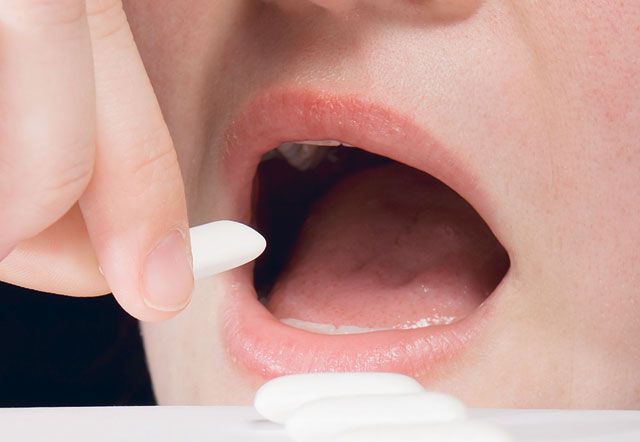It's the invisible cause of countless sackings, lost opportunities and wrecked romances. Bad breath, otherwise known as halitosis, comes with a high social cost. A dental practice in Cheshire in the UK recently surveyed its patients and found only 9 per cent would alert friends and family to the odour, in case they offended them.
"It's a shame, because it's treatable," said the practice founder, Dr Anjali Shahi, who has launched an emergency fresh-breath clinic.
If you are a sufferer, forget cupping your hands, blowing into them and smelling the air inside them. It won't work because the smell receptors in our olfactory bulbs detect only new smells, not persistent odours.
Instead, ask someone you trust for an honest assessment. If you don't want to risk embarrassing a friend or a family member, consult your dentist.
Some professionals use a special diagnostic tool called Halimeter, which measures the levels of sulphurous gases you exhale.
Help is at hand
But take heart — about a quarter of people who seek medical attention for bad breath don't have it. Instead, they have a psychosomatic condition called halaphobia.
The most common causes of halitosis are diet and poor oral hygiene. If you are fond of smelly foods such as garlic, onions and curry, their noxious odours may lurk temporarily in the mouth before dissipating.
According to Dr Shahi, it's the gradual build-up of bacteria on teeth, gums and tongue that causes the lingering smell.
Older people are particularly prone to halitosis because they tend to have more cavities and tartar, where bacteria can breed.
Another factor is insufficient saliva. "This is our protective buffer for neutralising acids and toxins such as sulphur. Saliva clears the mouth of bacteria and leftover food," Dr Shahi says. Without enough saliva, breath gets foul more quickly. If you drink coffee before bedtime, the effect is worsened.
Those who suffer from a dry mouth are at a higher risk of halitosis. People who snore and sleep with their mouths open are prone to bad breath. Chatterboxes are also affected because talking makes the mouth dry.
Dental hygiene
Dr Shahi suggests visiting a dental hygienist "at least every three to six months". But you must overhaul your oral-hygiene routine. You should also brush your tongue. Tongue scrapers are a good investment. Drink plenty of water and always eat breakfast to lessen "morning breath".
Chewing fruit hydrates the mouth, dislodging leftover food and bacteria.
Dr Shahi recommends using an antibacterial mouthwash with chlorhexidine.
If bad breath persists, it may be a symptom of another problem. "It could be sinus-related," she says.
Another cause is the inflammation of the tonsils and adenoids. They are breeding grounds for bacteria. Other less common but potentially serious causes of halitosis are diabetes, problems with the stomach lining, kidneys, liver and lungs.
It is best to consult your doctor immediately if you have concerns.












